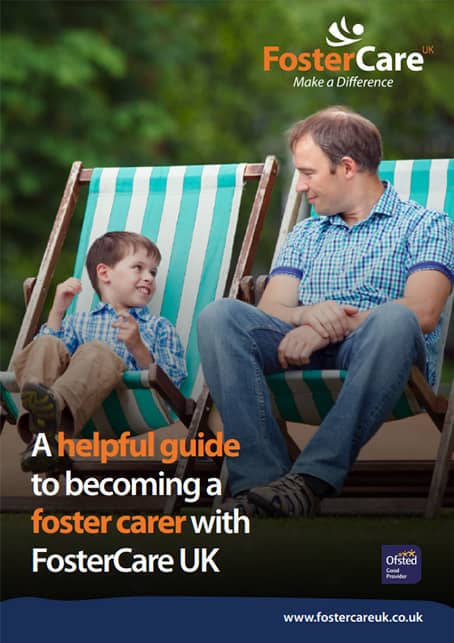


What happens when a child is taken into care?
Benefits of being a foster parent
What is a care leaver?
How to become a foster parent
How to foster a child
What are the foster care requirements
Can I choose who I foster?
Fostering with pets FAQ
How long does it take to become a foster parent?
What is the role of an independent fostering agency?
Fostering a disabled child
Tips for coping when foster placements end
Do foster carers pay tax?
What to expect in a fostering assessment
Common Fostering Challenges and Solutions
What disqualifies you from being a foster carer?
Muslim Fostering
Fostering as a single parent
Can you foster a child with a criminal record?
Can you work and foster?
Top 10 fostering myths
Can I foster if…?
Can I foster and rent?
LGBT Fostering: can I foster if I’m gay
Top transferable skills to become a foster carer
Can you foster with a mental health condition?
Christian Fostering
Sikh Fostering
Cultural Diversity in Foster Care
How to encourage foster children to read
Reasons for a child to be taken into care
Tips for coping with attachment disorders in Foster Children
Fostering vs Adoption
What happens when foster parents get divorced?
What is reunification in foster care?
How to deal with foster child bullying
A guide to the foster care handbook
Guide to fostering young children
Types of self-harm
A guide to fostering teenagers
What are the signs of depression in foster children?
Generally, income from fostering is tax-free if you are caring for one child. While foster carers may pay little to no tax at all, there are some factors that may affect this:
If you receive a high enough income from fostering that is subject to income tax, for example, you care for siblings, the amount of income you will have to pay tax on would be lower compared to other forms of employment. These specialist tax rules, known as Qualifying Care Relief tax scheme covers different types of foster care placement.
Qualifying Care Relief is a scheme that allows foster carers to receive payments from their fostering service up to a certain level, known as your qualifying amount, without being liable for tax. The scheme covers foster care, shared lives care (formerly called adult placement), (where a young person who was fostered remains past their 18th birthday), and parent & child care.
Many foster carers have little or no taxable profit from fostering as the qualifying care relief threshold is fairly generous. Those who do pay tax on the amount they earn over the tax threshold do not have to keep any complicated accounts or receipts, but instead simply work out any tax owed to HMRC at the end of the financial year (5th April) by using this simple calculation:
Foster carers are classed as self-employed as of 2003 by HM Revenue and Customs, therefore you need to make sure you are registered as self-employed as soon as you start caring for your first foster child regardless of the type of fostering and level of income you receive from fostering. Once registered, you will be required to complete a tax return every year. With Foster Care UK, you’re not alone, as there is support and guidance available from Foster Talk which is free for Foster Care UK foster parents.
For every year that you are an approved foster carer, you will need to complete a Self Assessment tax return, even if your income from fostering is covered by the Qualifying Care Relief scheme. You will be contacted by HMRC in April to inform you that you are required to complete a Self Assessment tax return that must be completed by the 31st October by paper or by the 31st January online. This can be done yourself or by an accountant on your behalf.
Once you have completed and submitted your Self Assessment tax return, you can pay your tax in the following ways:
If you’re interested in becoming a foster parent, there are many different types of fostering such as children with disabilities that are in need of care. We provide specialist training to all of our foster parents, to help you provide the very best care for your foster child. For more information contact our friendly and helpful team for more information today.
If you’ve got any questions or would like to find out more about fostering with Capstone, fill out the form below.
An experienced fostering advisor from your local area will then be in touch.

Start the conversation today. Our team of friendly advisors are on hand to answer any foster care questions you may have. We can offer you honest and practical advice that can help you decide if becoming a foster carer is the right path for you.


